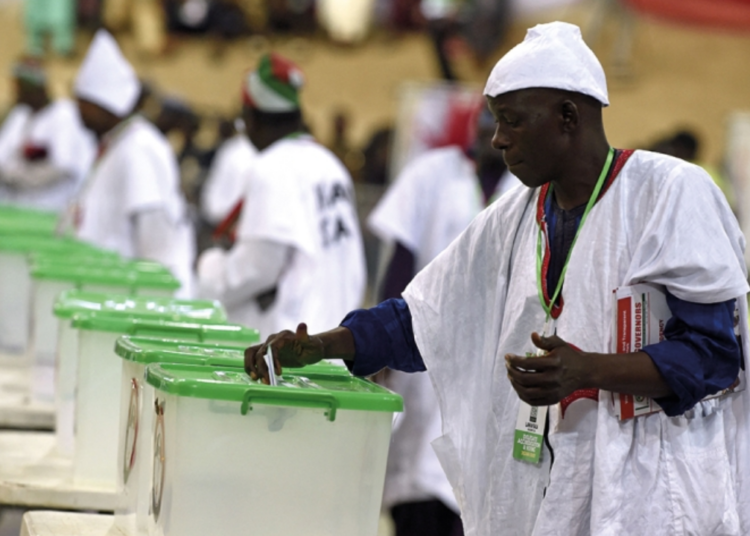As the electorate in Imo, Kogi, and Bayelsa prepare to exercise their democratic right by electing their governors tomorrow, there is, in the air, a palpable sense of both anticipation and apprehension.
It is instructive to note that the Independent National Electoral Commission (INEC) had reported that a total of 5.41 million eligible voters will participate in the elections, According to the electoral body, 1,056,862 in Bayelsa, 2,419,922 in Imo, and 1,932,654 in Kogi.
This exercise marks a significant milestone as it is the first election conducted after President Bola Tinubu assumed office on May 29 this year.
While Imo and Bayelsa states witness incumbent governors seeking re-election, Kogi presents a different scenario as its citizens prepare to elect a new governor, following the conclusion of Governor Yahaya Bello’s two terms.
While elections should ideally be a celebration of democracy, the lead-up to these particular polls has been marred by threats of violence. In our view, violence has no place in the democratic process, and it endangers it’s very essence.
Consequently,INEC has issued a stern warning, stating its intention to cancel the votes in any polling unit where violence is recorded.
In the considered opinion of this newspaper, this warning, while necessary,also raises concerns. Some politicians might resort to instigating violence in their opponents’ strongholds with the hope of having votes their canceled, undermining, in the process the integrity of the entire exercise.
Pointedly,one of the gravest concerns surrounding these elections is the diminishing confidence of voters in the electoral process. The pervasive fear of insecurity and a growing lack of trust in the process could deter a significant portion of eligible voters, particularly in Imo state, where security concerns are pronounced.This is a worrying trend that needs immediate attention. An effective democracy relies on the participation of an informed and engaged citizenry.
When voters lose faith in the process, the very essence of representative governance is threatened.
We implore INEC to conduct elections that are not only free but also transparent. The use of technology, such as the Biometric Verification and Authentication System (BVAS) and Integrated Result Electronic Verification (IREV) devices, should be mandatory in every polling unit.
Undoubtably,these tools have proven effective in reducing cases of over-voting in previous elections.
While INEC strives for credibility, politicians are unfortunately engaged in efforts to circumvent the exercise to their warped favour. We insist that his practice must cease. Politicians found instigating violence should face the full force of the law to deter electoral offenders. It is crucial to send a clear message that electoral violence will not be tolerated.
In the same vein, we call upon politicians to adhere to the principles of fair play and respect for the rule of law. Elections should never be a do-or-die affair; they should be a peaceful exercise that reflects the will of the people.
We have consistently advocated against the judiciary determining electoral victories, as this is not in line with the tenets of democracy.
Needless to say,the winner of an election should be decided by the electorate, ensuring that the true spirit of democracy prevails.
The gubernatorial elections in Imo, Kogi, and Bayelsa states are not just another political event. They are a reflection of the principles of democracy, where the voice of the people shapes the future.
Therefore, it is our collective responsibility to ensure that these elections are conducted credibly, peacefully, and with the utmost transparency.
To achieve this, INEC should leverage technology, deter electoral offenders, and maintain strict vigilance against any attempts to instigate violence or manipulate the process. Political actors, including incumbents and challengers, should embrace ethical conduct, promote tolerance, and respect the democratic values that underpin our society.
Ultimately, elections should be a time of unity, where citizens come together to choose their leaders. We must not allow violence, intimidation, or a lack of confidence to undermine the democratic principles that Nigeria holds dear. It is time for all stakeholders to come together, regardless of their political affiliations, and safeguard the integrity of our electoral process. Only through such concerted efforts can we truly embrace the essence of democracy and pave the way for a better Nigeria.





